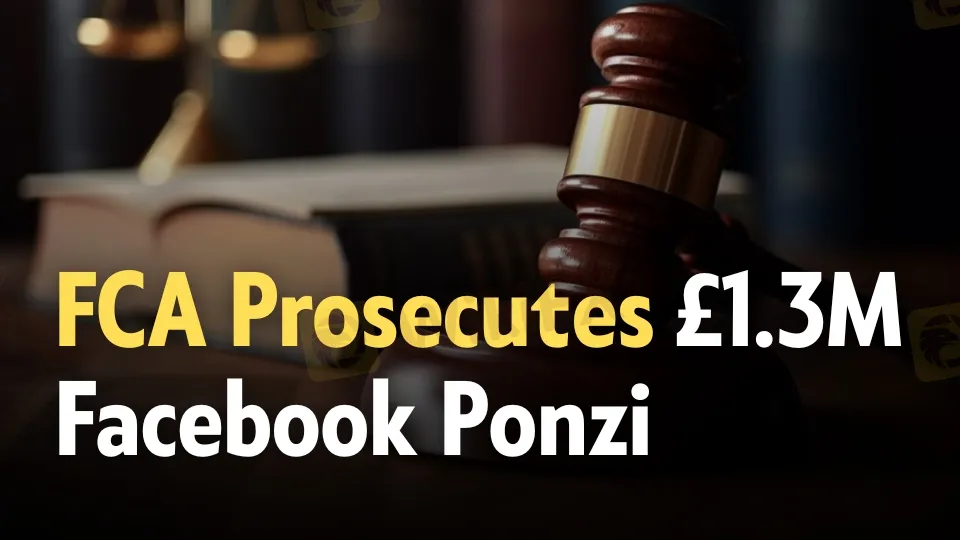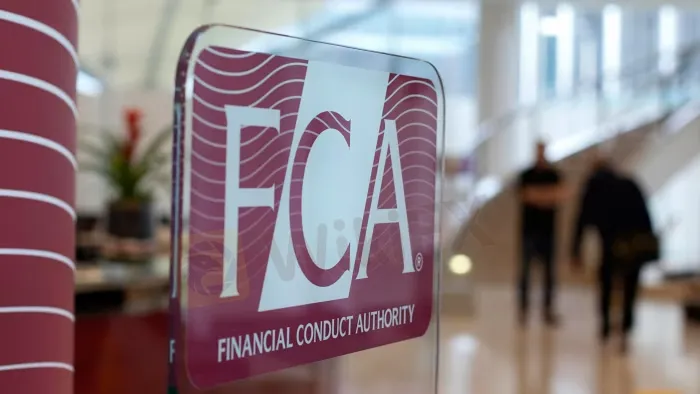Abstract:FCA prosecutes £1.3m Facebook-based Ponzi scheme targeting retail investors, highlighting rising social media investment fraud and regulator enforcement.

The UK Financial Conduct Authority secured the conviction of Daniel Pugh for operating a £1.3m Ponzi scheme via the Imperial Investment Fund, which targeted 238 investors—largely recruited through Facebook—with promises of 1.4% daily, 7% weekly, or 350% annual returns. Pugh was found guilty of conspiracy to defraud, having already admitted to unauthorised regulated activity in breach of sections 19 and 21 of the Financial Services and Markets Act 2000, with confiscation proceedings to follow. The FCA emphasized its focus on tackling financial crime and noted another individual remains wanted in connection with the case.
Financial Scams on Social Media Platforms
Regulators across North America report that financial scams increasingly originate on mainstream social and messaging platforms—Facebook and X (31.7%), Telegram and WhatsApp (31.3%), with TikTok/Instagram Reels (19.0%) and YouTube/Vimeo (14.1%) also significant vectors—underscoring how social reach amplifies fraud exposure. Authorities warn that AI-generated content and deepfakes are accelerating these threats, with 38.9% of regulators expecting more polished, deceptive materials and 22.2% anticipating increased impersonation attempts in 2025.

Millennials, Gen Z, Social Media, and Financial Advice
The trend intersects with younger investors‘ behavior, where social platforms serve as a perceived alternative to traditional guidance—a dynamic that fraudsters exploit through aggressive marketing, emotional persuasion, and outsized return claims. These patterns mirror the Pugh case’s reliance on social ads to solicit deposits, highlighting the risk when investment decisions are influenced by social media narratives rather than regulated advice channels.
Regulators Response to Online Investment Fraud
Supervisory bodies are intensifying public warnings and investor education efforts on social platforms, pairing enforcement with prevention to curb the spread of online investment fraud. NASAAs 2025 threat list elevates social media schemes and crypto-tied promotions as priority risks, urging vigilance around pressure tactics, unregistered promoters, and guaranteed-returns messaging.
CySEC Campaign Against Fake Financial Scams
The Cyprus Securities and Exchange Commission has launched a social media campaign warning investors about impersonation and fake affiliations, stressing that the regulator does not send unsolicited emails, request money, or conduct compensation or recovery actions, and urging verification of any contact claiming CySEC ties. The initiative targets “double victimization” attempts, where fraudsters approach prior scam victims with bogus recovery offers while misusing CySECs identity.
Why It Matters
- Ponzi scheme fraud Daniel Pugh conviction: The case exemplifies how high-yield promises and social recruitment combine to inflict large-scale investor harm in a short period.
- Financial scams on social media platforms: Data-driven insights from regulators show scams cluster on mainstream apps and video platforms, increasingly boosted by AI tools that mimic credibility.
- Regulators response to online investment fraud: Cross-border regulators are escalating both enforcement and real-time public alerts to counter evolving digital fraud vectors.
- Millennials, Gen Z, social media, financial advice: Younger cohorts reliance on social content for financial decisions elevates exposure to unlicensed promoters and deceptive campaigns.
- CySEC campaign against fake financial scams: Direct, platform-native warnings help investors spot impersonation, avoid sharing sensitive data, and verify outreach before acting.
Don't miss out on the latest news from FCA. Scan the QR code below to dowload and install the WikiFX app on your smartphone.











